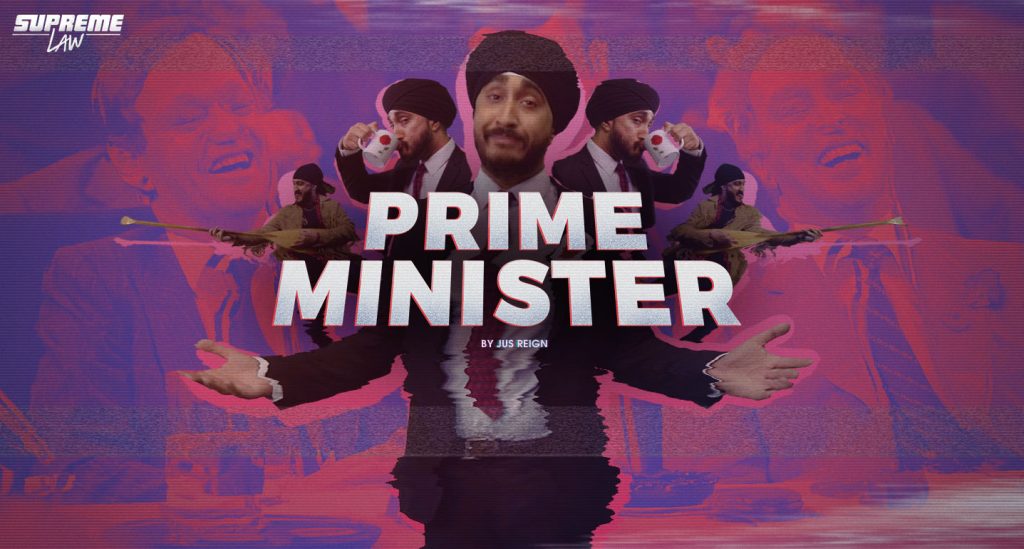
Supreme Law | Engage Students with an Interactive Website on Canada’s Constitution
Supreme Law | Engage Students with an Interactive Website on Canada’s Constitution
A new interactive website, Supreme Law, allows teachers and students to explore the 1982 repatriation of the Constitution from a multitude of perspectives. An exploration of this website will not only enhance student understanding of the time period, but it will also help students critically explore how history is presented. Key questions to frame lessons can include “Who writes history?” and “Whose history should we read?”

Explore Supreme Law now!
Five different takes on one event
This website should appeal to any teacher who is looking to bring energy to their civics, politics or history class, and also to those who are seeking to enhance student understanding of the rich perspectives that make up our diverse country. The website explores the negotiations and background of the 1982 repatriation of the Constitution through five different lenses: that of the Prime Minister, the West, Quebec, Indigenous peoples and women. All scenarios feature a video acted out with humour by some of Canada’s well-known Internet stars.
The historic fight to entrench Indigenous rights and gender equality
Today’s students are savvy and increasingly aware of their own rights. They are often front and centre in the battle for these rights. This is why the sections of the Supreme Law website on women and Indigenous rights are of such significance in the classroom. Students will have a chance to contextualize their own fight for human rights and see how the implementation of the Charter of Rights and Freedoms was a game-changer.
Animated by the likeable and at-times justifiably outraged Baker Twins, the section on Indigenous rights demonstrates how intensely Indigenous leaders had to fight to get a mention of their rights in the Constitution. It would be interesting for teachers to parallel this section with the continued work coming out of the Truth and Reconciliation Commission or Idle No More.
Students may be familiar with the Persons Case of 1929 and the fact that women were not always considered to be “persons” in Canada. The Supreme Law website helps advance the discussion on gender equality even further. Canadian television host and YouTuber Rachel David explains how ordinary women across the country pushed their elected representatives for a more inclusive Charter. It’s a story that not only highlights the fight for gender equality, but also shows the impact that citizens can have on their government.
Ottawa, Quebec and the West – Tensions in the past that still have an impact today
Key events across the country are often reported differently depending on the target audience. This remains true today, and it certainly was the case in 1982. The sections on the Prime Minister, the West and Quebec are a great way to teach how one story plays out differently across the country. Students can explore the perspective of Prime Minister Pierre Elliot Trudeau, played by comedian Jus Reign sporting a makeshift Trudeau-style fringe leather jacket. There is also the competing perspectives of the West and Quebec—two fundamentally different views of what happened during that time. The impact of these negotiations continues to influence society, and an exploration of these sections should help students gain a perspective on how historical tensions still influence relations among modern provinces and the federal government.
Deep Dives – An option for in-depth examination of the issues
For teachers who want to extend the activity, there are a variety of Deep Dive sections on the website. Of particular interest may be the exploration of key Supreme Court decisions based on the Charter, or the exploration of how Indigenous leaders took their fight to the United Kingdom as well as to the United Nations in order to be heard.
Our world is polarizing more every day. Having students explore a subject from many angles has positive impacts beyond content. The Supreme Law website can be a jumping-off point for helping students to see modern issues from more than one lens. As a bonus, students will likely be amused and entertained when learning about the Constitution—a first step to helping them remember its supreme importance.
Carla McIvor currently teaches Social Studies at West Island College in Calgary, Alberta. She has also taught courses ranging from Philosophy to Comparative Government in British Columbia and Ontario. Carla has a B.A. in Political Science from McGill University, a B.Ed. from University of Ottawa and a master’s degree in International Relations from the University of Geneva.
Pour lire cet article en français, cliquez ici.
Discover more Educational blog posts | Watch educational films on NFB Education | Subscribe to the NFB Education Newsletter | Follow NFB Education on Facebook | Follow NFB Education on Twitter | Follow NFB Education on Pinterest



